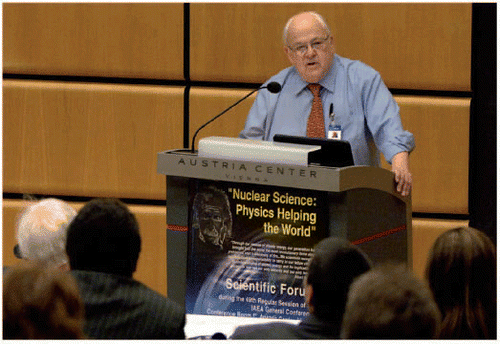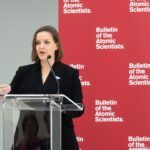Burton Richter: Seeing energy in three dimensions
By Bulletin Staff | July 1, 2012

In this interview, Stanford University physicist and Nobel laureate Burton Richter describes his strategy for gaining broader public and political agreement on how to change US energy policy. He recommends approaching the energy debate from three different perspectives—economic, national security, and environmental—and focusing less narrowly on climate change. Richter presents himself as a pragmatic moderate, trailblazing a path between climate “deniers” and “exaggerators.” He advocates replacing all coal-burning power plants with natural gas, adopting stricter fuel-efficiency standards, electrifying vehicles, building grid-scale storage for renewable energy, instituting a revenue-neutral carbon tax, and expanding nuclear power— all measures on which he sees potential for widespread agreement across political lines in the United States. Richter discusses ways to make nuclear power safer in countries that are new to it, such as requiring these countries to hire expert operators from more experienced countries for the first few years. He also shares his concerns about regulatory shortcomings in some countries. Richter remains optimistic about solving the challenges of climate change and recommends limiting future climate talks to a smaller group of nations as a way of making faster progress.
Together, we make the world safer.
The Bulletin elevates expert voices above the noise. But as an independent nonprofit organization, our operations depend on the support of readers like you. Help us continue to deliver quality journalism that holds leaders accountable. Your support of our work at any level is important. In return, we promise our coverage will be understandable, influential, vigilant, solution-oriented, and fair-minded. Together we can make a difference.













